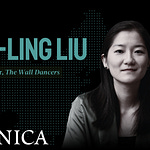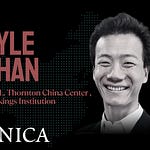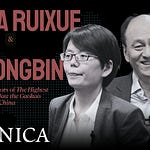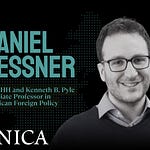This week, we feature the first half of an extensive interview with Shelley Rigger, a political scientist at Davidson College and the leading U.S. expert on the politics of Taiwan. This first half of the interview, which covers the history of Taiwan through 1996, was conducted by Neysun Mahboubi of the UPenn Center for the Study of Contemporary China Podcast (one of our favorite China podcasts), and is republished here with the Center’s permission. What to listen for on this week’s Sinica Podcast: 11:05: What was Taiwan’s status in the global world order before the normalization of U.S.-China relations, and in what direction did that status shift after 1978? How did this event help shape Taiwanese identity? Shelley begins the podcast by describing the importance of the history of the island nation. 15:00: After Taiwan was handed over to the Republic of China in 1945, the Chinese civil war continued on the Chinese mainland. Because the Nationalists’ efforts were primarily focused on defending the mainland, Taiwan became a “troublesome backwater” to the larger battle being fought across the Taiwan Strait. Shelley describes this post–World War II period in Taiwan: “The Nationalists are fighting hard to save the heartland of China, and so Taiwan became a kind of ‘troublesome backwater,’ a sideshow. But for the people of Taiwan to realize they had become this kind of sideshow and that their island was supposed to be kind of a platform from which the Nationalists could prosecute this other war, and could achieve their real goal, that was kind of shocking.” 24:05: When the Nationalists fled mainland China to Taiwan in 1949, they brought with them many officials who were elected two years previously on the mainland to “repopulate the legislature.” Shelley states: “Those people, those individuals, retained their seats from 1947 to 1991 because the logic went: ‘We can’t replace these guys until we can have an election back in their home district in Hubei, or Xinjiang, or wherever, so they have to just keep their seats.’” 39:35: From the 1970s onward, there were big changes in the Taiwanese psyche for a number of reasons. Taiwan had lost its seat at the UN Security Council, and Richard Nixon and Henry Kissinger had canceled a mutual defense treaty with the Republic of China. Some thought the island nation was soon to be nonexistent. Shelley argues that it was instead liberating: “It released Taiwan from the necessity to pretend to be China, and it opened the door to reimagining Taiwan in a new way. So the obligation of the Taiwanese people and even Taiwan as a physical geographical space to subjugate itself to the destiny of China is gone…”
This podcast was edited and produced by Kaiser Kuo and Jason MacRonald.
See Privacy Policy at https://art19.com/privacy and California Privacy Notice at https://art19.com/privacy#do-not-sell-my-info.












